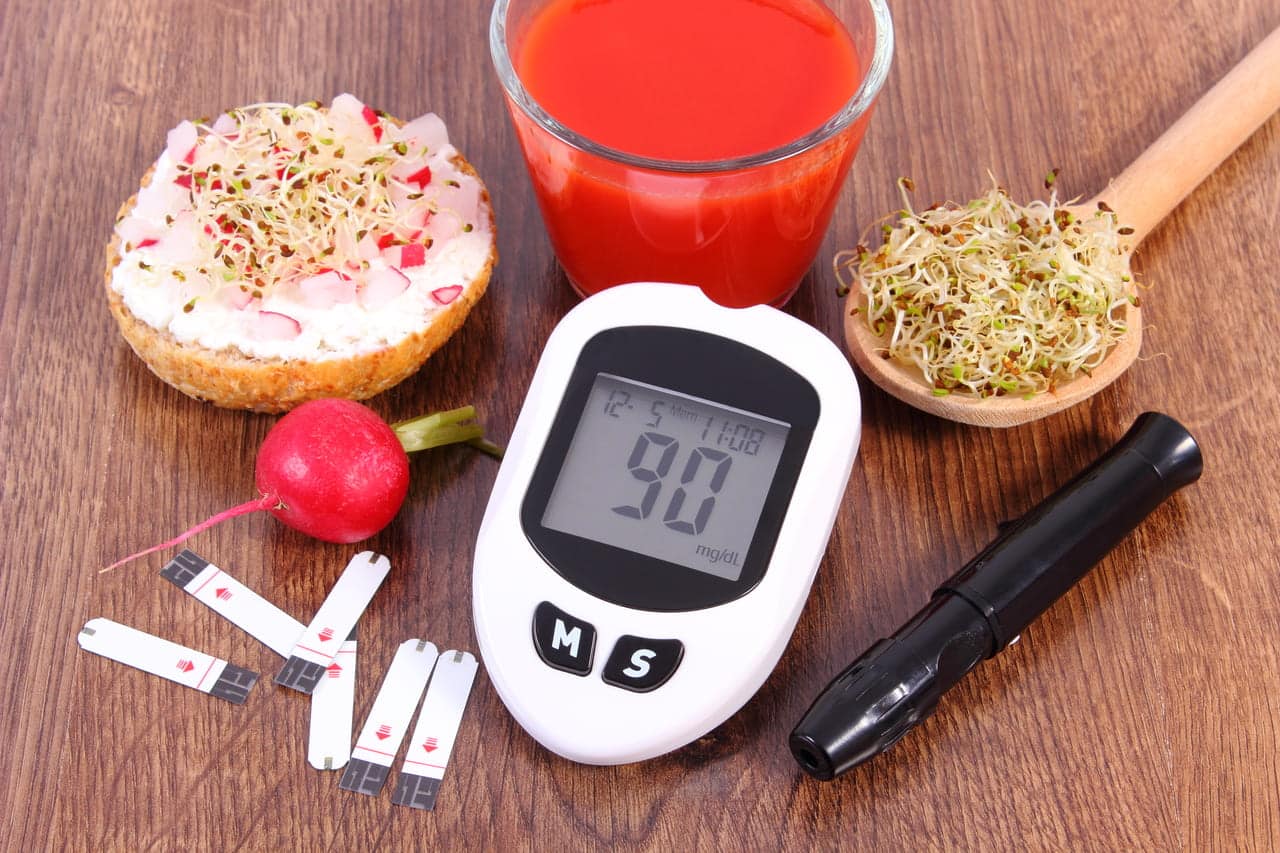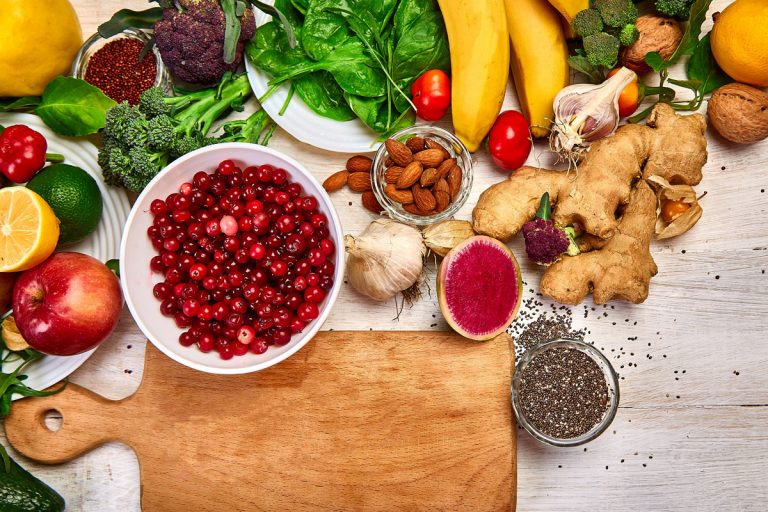Type 2 diabetes is a chronic condition that affects how your body processes glucose, a type of sugar. When you have type 2 diabetes, it’s important to manage your blood sugar levels by making healthy food choices. Some foods can cause your blood sugar levels to spike, which can be harmful to your health.
Eating foods that are high in carbohydrates or sugar can cause a rapid increase in blood sugar levels, particularly in people with type 2 diabetes. Normally, when we eat carbohydrates, they are broken down into glucose, which is then transported to our cells to be used as energy. In people with diabetes, this process does not work effectively because their bodies either do not produce enough insulin or are resistant to its effects.
Insulin is a hormone produced by the pancreas that regulates blood sugar levels by allowing glucose to enter the cells. When there is not enough insulin or the body is resistant to its effects, glucose cannot enter the cells and builds up in the bloodstream, leading to high blood sugar levels.
Certain foods can cause a more rapid increase in blood sugar levels than others.
Carbohydrates, particularly refined carbohydrates like white bread and pasta, are quickly broken down into glucose and cause a rapid increase in blood sugar levels. Similarly, sugary foods and drinks can cause a rapid spike in blood sugar levels because they are quickly absorbed into the bloodstream.
Eating too much of any food can also contribute to high blood sugar levels because excess calories are converted into glucose and stored in the liver. This can cause blood sugar levels to remain elevated even when you’re not eating.
It’s important to monitor your blood sugar levels regularly and work with your healthcare provider to develop a healthy eating plan that works for you. By avoiding foods that can cause a rapid increase in blood sugar levels, you can help manage your blood sugar levels and reduce the risk of complications associated with type 2 diabetes. In this article, we will discuss 10 foods to avoid when you are trying to manage your diabetes.
In This Article
10 Foods To Manage Your Diabetes
Discover the top 10 foods to avoid when managing type 2 diabetes. Steering clear of these items can help you maintain healthy blood sugar levels, reduce complications, and enhance your overall health. Make informed choices for a balanced diabetic-friendly diet.
1. Sugary Drinks
Sugary drinks, such as soda and fruit juice, are high in sugar and can cause a rapid increase in blood sugar levels. These drinks also contain empty calories, which can contribute to weight gain and obesity, a risk factor for type 2 diabetes. Instead of sugary drinks, choose water, unsweetened tea, or sparkling water with a splash of citrus for a refreshing and healthy beverage option.
- Rapid blood sugar spikes: Sugary drinks can cause quick and significant increases in blood sugar levels, making it difficult for diabetes patients to maintain proper glucose control.
- Weight gain: High-calorie, sugar-laden beverages contribute to weight gain and obesity, both of which are risk factors for type 2 diabetes and can worsen existing diabetic conditions.
- Empty calories: Sugary drinks provide little to no nutritional value, leading to increased calorie intake without any benefits for overall health.
- Increased insulin resistance: Regular consumption of sugary drinks can contribute to insulin resistance, making it harder for the body to regulate blood sugar levels effectively.
- Increased risk of complications: Consistently high blood sugar levels from sugary drink consumption can lead to long-term complications such as nerve damage, kidney disease, and cardiovascular issues.
2. Processed Foods
Processed foods, such as chips, crackers, and packaged snacks, are often high in sodium, unhealthy fats, and added sugars. These foods can cause a rapid increase in blood sugar levels and contribute to weight gain and other health problems. Instead of processed foods, choose fresh fruits and vegetables, lean proteins, and whole grains for a healthier diet.
- High in unhealthy fats: Processed foods often contain trans and saturated fats, which can contribute to increased cholesterol levels, heart disease, and poor blood sugar control.
- Excessive sodium content: High levels of salt in processed foods can lead to elevated blood pressure and increased risk of heart disease, both of which are concerns for diabetes patients.
- Hidden sugars: Processed foods may contain added sugars that can cause blood sugar spikes and make it challenging for diabetes patients to maintain stable glucose levels.
- Low in nutrients: Processed foods typically lack essential vitamins, minerals, and fiber, limiting their nutritional benefits and potentially exacerbating diabetes-related health issues.
- Weight management challenges: The combination of high calorie content, unhealthy fats, and added sugars in processed foods can make it difficult for diabetes patients to maintain a healthy weight.
3. White Bread, Pasta, and Rice
White bread, pasta, and rice are refined carbohydrates that can cause a rapid increase in blood sugar levels. These foods are also low in fiber, which can contribute to digestive problems and poor blood sugar control. Instead of white bread, pasta, and rice, choose whole-grain options such as whole-wheat bread, brown rice, and whole-grain pasta for a healthier carbohydrate source.
- High glycemic index: White bread, pasta, and rice have a high glycemic index, causing rapid blood sugar spikes in diabetes patients, making glucose control challenging.
- Low fiber content: These refined grains lack the fiber found in whole grains, which helps regulate blood sugar levels and promotes digestive health.
- Nutrient loss: The refining process strips away essential nutrients such as vitamins, minerals, and antioxidants, reducing the overall nutritional value of these foods.
- Weight gain potential: Refined grains are calorie-dense, and their low satiety factor can lead to overeating, resulting in weight gain and worsening diabetes management.

4. High-Fat Dairy Products
High-fat dairy products, such as cheese and whole milk, are high in saturated fat and calories. These foods can contribute to weight gain and increase the risk of heart disease, a common complication of diabetes. Instead of high-fat dairy products, choose low-fat or fat-free options such as skim milk, low-fat yogurt, and reduced-fat cheese for a healthier source of dairy.
- Saturated fat content: High-fat dairy products contain saturated fats, which can raise LDL cholesterol levels and increase the risk of heart disease for diabetes patients.
- Weight gain risks: Consuming high-fat dairy products may contribute to weight gain, which can further complicate diabetes management and increase the risk of related health issues.
- Insulin resistance: Diets high in saturated fats have been linked to insulin resistance, making it more difficult for the body to regulate blood sugar effectively.
- Inflammation: Some studies suggest that high-fat dairy products may contribute to inflammation, which can negatively impact blood sugar control and overall health.
- Healthier alternatives available: Low-fat or non-fat dairy products provide essential nutrients like calcium and protein without the negative effects of saturated fats, making them a better choice for diabetes patients.
5. Fried Foods
Fried foods, such as french fries and fried chicken, are high in unhealthy fats and calories. These foods can contribute to weight gain and increase the risk of heart disease and other health problems. Instead of fried foods, choose grilled or baked options for a healthier meal.
- Unhealthy fats: Fried foods are typically high in trans and saturated fats, which can contribute to increased cholesterol levels, heart disease, and poor blood sugar control.
- Calorie-dense: The frying process adds extra calories to foods, making it easier to consume excess calories and potentially leading to weight gain for diabetes patients.
- Increased inflammation: Consuming fried foods has been linked to increased inflammation in the body, which can negatively impact blood sugar control and overall health.
- Insulin resistance: Diets high in unhealthy fats from fried foods can contribute to insulin resistance, making it more difficult for the body to effectively manage blood sugar levels.
6. Candy and Sweets
Candy and sweets are high in sugar and can cause a rapid increase in blood sugar levels. These foods also contain empty calories, which can contribute to weight gain and obesity. Instead of candy and sweets, choose fresh fruits, low-sugar desserts, or sugar-free alternatives for a healthier sweet treat.
- Rapid blood sugar spikes: Candy and sweets are loaded with sugar, causing quick and significant increases in blood sugar levels, making it difficult for diabetes patients to maintain proper glucose control.
- Empty calories: These sugary treats provide little to no nutritional value, leading to increased calorie intake without any benefits for overall health or blood sugar management.
- Cravings and overeating: Consuming candy and sweets can trigger cravings for more sugary foods, potentially leading to overeating and difficulties in managing diabetes.
- Dental health concerns: Excessive consumption of candy and sweets can contribute to tooth decay and other dental issues, which can be particularly problematic for people with diabetes due to their increased risk of gum disease.
- Healthier alternatives: Opting for low-sugar or sugar-free treats, or natural sweeteners like fresh fruit, can satisfy a sweet tooth while minimizing the impact on blood sugar levels and overall health.
7. Processed Meats
Processed meats, such as bacon and sausage, are high in sodium and unhealthy fats. These foods can increase the risk of heart disease, a common complication of diabetes. Instead of processed meats, choose lean proteins such as chicken, fish, and tofu for a healthier source of protein.
- High sodium content: Processed meats often contain excessive amounts of sodium, which can lead to elevated blood pressure and increase the risk of heart disease for diabetes patients.
- Preservatives and additives: Chemicals like nitrates and nitrites are used in processed meats, which have been linked to increased inflammation, insulin resistance, and potential cancer risks.
- Low-quality fats: Many processed meats contain unhealthy fats, contributing to weight gain, increased cholesterol levels, and poor blood sugar control in diabetes patients.
- Increased risk of complications: Regular consumption of processed meats has been associated with a higher risk of type 2 diabetes complications, such as heart disease and kidney problems.
- Lack of essential nutrients: Compared to unprocessed meats, processed meats often lack vital nutrients like vitamins, minerals, and antioxidants that support overall health and diabetes management.
8. Alcohol
Alcohol can cause a rapid increase in blood sugar levels and can contribute to weight gain and other health problems. People with diabetes should limit their alcohol intake and choose low-sugar options such as light beer or wine in moderation.
- Blood sugar fluctuations: Alcohol can cause unpredictable fluctuations in blood sugar levels, making it difficult for diabetes patients to maintain proper glucose control.
- Weight gain: Alcoholic beverages are often high in calories and can contribute to weight gain, which can exacerbate existing diabetic conditions and hinder effective management.
- Interference with medications: Alcohol may interact with certain diabetes medications, reducing their effectiveness or causing dangerous side effects, such as hypoglycemia.
- Increased risk of complications: Excessive alcohol consumption has been linked to a higher risk of diabetes-related complications, including nerve damage, eye problems, and cardiovascular issues.
- Impaired judgment: Alcohol can impair judgment and decision-making, making it challenging for diabetes patients to effectively manage their condition and make healthy choices.
9. Canned Foods
Canned foods, such as soups and vegetables, are often high in sodium and added sugars. These foods can contribute to poor blood sugar control and increase the risk of heart disease. Instead of canned foods, choose fresh or frozen options for a healthier meal.
- High sodium content: Canned foods often contain excessive amounts of sodium as a preservative, which can lead to elevated blood pressure and increase the risk of heart disease for diabetes patients.
- Hidden sugars: Some canned foods, especially fruits and vegetables, may have added sugars that can cause blood sugar spikes and make glucose control difficult for diabetes patients.
- Nutrient loss: The canning process can result in the loss of essential nutrients, such as vitamins and antioxidants, reducing the overall nutritional value of these foods.
- Bisphenol A (BPA) exposure: Many canned food containers are lined with BPA, a chemical linked to various health concerns, including insulin resistance and increased risk of type 2 diabetes.
- Lower quality ingredients: Canned foods may contain lower quality ingredients or be overcooked during the canning process, resulting in a less desirable taste and texture compared to fresh or frozen alternatives.
10. Fast Food
Fast food, such as burgers and fries, is often high in calories, unhealthy fats, and added sugars. These foods can contribute to weight gain and increase the risk of heart disease and other health problems.
- Excessive calories: Fast food is often high in calories, which can contribute to weight gain and obesity, both of which are risk factors for developing type 2 diabetes.
- High sodium content: Many fast food items contain large amounts of sodium, which can lead to elevated blood pressure and increased risk of heart disease for diabetes patients.
- Unhealthy fats: Fast food is typically high in unhealthy fats, such as saturated and trans fats, which can raise cholesterol levels and negatively impact blood sugar control.
- Refined carbohydrates: Fast food often contains refined carbohydrates, like white bread and processed grains, which can cause rapid blood sugar spikes and hinder effective diabetes management.
- Lack of essential nutrients: Fast food generally offers limited nutritional value, lacking essential vitamins, minerals, and fiber that support overall health and diabetes management.
Conclusion
Managing type 2 diabetes effectively requires careful consideration of the foods you consume. By avoiding the top 10 foods listed in this blog post, such as sugary drinks, processed meats, fast food, and refined carbohydrates, you can better control your blood sugar levels and reduce the risk of complications associated with diabetes. Emphasize a balanced diet rich in whole grains, lean proteins, fruits, vegetables, and healthy fats to support overall health and well-being. Remember, working closely with your healthcare team and making informed dietary choices can significantly improve your quality of life while living with type 2 diabetes.











